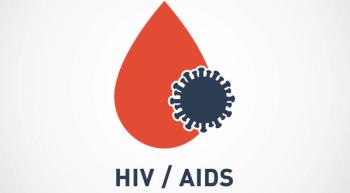
This is the first approval for this patient population in nearly a decade.

This is the first approval for this patient population in nearly a decade.

The FDA approved entrectinib for pediatric and adult patients with certain subtypes of solid tumors, including non-small cell lung cancer.

Oncology nurses can make the world of a difference when it comes to patient care, and it is crucial that they work together with other members of the treatment team to ensure the best outcomes, according to Sally Werner, MSHA, BSN, RN, senior vice president, affiliate relations at Cancer Support Community.

Workplace violence for healthcare workers – including nurses – is on the rise. Here’s what nurses need to know about the hot-button topic.

Derek Hough spoke to a crowd of oncology nurses at the 3rd Annual School of Nursing Oncology conference.

The Food and Drug Administration (FDA) approved pexidartinib for the treatment of adults with symptomatic tenosynovial giant cell tumor (TGCT).

About 25% of healthcare-related infections come from catheters, but there are steps nurses can take to mitigate this problem.

The FDA approved pembrolizumab to treat certain patients with recurrent, locally advanced or metastatic squamous cell carcinoma of the esophagus.

The annual SONO meeting will feature the latest research and pressing topics for oncology nurses.

Many adolescent and young adult cancer survivors struggle in the post-cancer period. Oncology nurses can help ensure that they don’t fall through the cracks.

The Food and Drug Administration granted a priority review for a new drug application for tazemetostat. The drug will be used to treat a rare kind of soft tissue sarcoma that mainly affects young adults.

After months of debate, the Food and Drug Administration announced that they will be taking action to protect women from breast implant-associated anaplastic large cell lymphoma.

The Food and Drug Administration (FDA) approved rituximab-pvvr (Ruxience), a biosimilar to rituximab (Rituxan) for the treatment of blood cancers.

A recent study found that in some parts of the United States, more patients with cancer are treated by nurse practitioners than medical oncologists.

Immunotherapy has drastically changed the treatment landscape for non-small cell lung cancer, but how can practitioners decide who should get frontline chemotherapy, too?

Molecular testing has led to monumental strides in the field of ovarian cancer, offering women with the disease more personalized treatment options.

Oncology nurses may experience a high level of bullying from their peers, but steps can be taken to improve the environment of the workplace.

Nurses, patients, and caregivers can now have crucial information regarding medical devices sent directly to their smartphone.

An oncology nurse started a grassroots campaign that brought together community members and patients on the oncology unit.

A person’s HIV status should not be the sole reason they are excluded from a cancer clinical trial, according to recent research.

Symptom management and proper risk stratification are two crucial ways to improve the care of patients with myeloproliferative neoplasms, according to one expert.

After her sister passed away from hepatocellular carcinoma, Andrea Wilson started Blue Faery: The Adrienne Wilson Liver Cancer Association.

When it comes to molecular testing to advance the field of lung cancer, coordinated efforts between providers—and institutions nationwide—are key.

Now that patients have more drug options to treat myeloma, quality of life is becoming more important, said one expert.

An expert discusses the cardiac toxicity of ABP 980, a trastuzumab biosimilar, in the breast cancer space.

An expert gives an overview of how CDK4/6 inhibitors changed the treatment landscape for patients with metastatic breast cancer.

The Food and Drug Administration (FDA) approved selinexor (Xpovio) plus dexamethasone for the treatment of patients with relapsed or refractory multiple myeloma, who had at least 4 prior therapies.

As the number of cancer diagnoses continues to increase across the United States it is crucial that primary care providers know when to refer patients to oncology teams.

The Food and Drug Administration approved bevacizumab-bvzr (Zirabev) – a biosimilar for bevacizumab (Avastin) for the treatment of metastatic colorectal cancer; unresectable, locally advanced, recurrent or metastatic NSCLC; recurrent glioblastoma; metastatic renal cell carcinoma; and persistent, recurrent or metastatic cervical cancer.

The Food and Drug Administration approved daratumumab (Darzalex) plus lenalidomide and dexamethasone (Rd) for the treatment of patients with newly diagnosed myeloma who are not eligible for autologous stem cell transplant (ASCT), according to Janssen, the manufacturer of the drug.